|
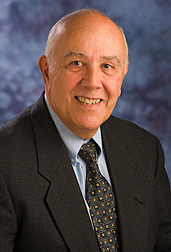 WASHINGTON, Mar. 6—Discoveries to advance the expanding field of biobased products and biodiesel research have earned Agricultural Research Service (ARS) chemist Thomas A. Foglia the agency's Distinguished Senior Research Scientist of the Year award for 2006. ARS is the chief in-house scientific research agency of the U.S. Department of Agriculture. WASHINGTON, Mar. 6—Discoveries to advance the expanding field of biobased products and biodiesel research have earned Agricultural Research Service (ARS) chemist Thomas A. Foglia the agency's Distinguished Senior Research Scientist of the Year award for 2006. ARS is the chief in-house scientific research agency of the U.S. Department of Agriculture.
Foglia and other award-winning ARS scientists were recognized by ARS Administrator Edward B. Knipling at an awards ceremony today at USDA headquarters here. Each scientist received a plaque, cash award and additional funding for research.
At the ARS Eastern Regional Research Center in Wyndmoor, Pa., Foglia has helped expand knowledge of how fats and oils can be converted to biobased products and biodiesel fuel. During his 38 years with ARS, he has authored or co-authored 228 publications, 175 technical abstracts and 17 patents.
"Dr. Foglia's career has been distinguished not only by his spirit of scientific discovery, but also by the dedication, integrity and leadership that have won him the respect of his peers both in the United States and abroad," Knipling said. (More about Foglia's research)
|
|
 In addition to the scientists of the year, the agency today honored other agency employees for outstanding achievements in 2006 for administration and financial management, equal opportunity and civil rights, excellence in information, office professionalism, and technology transfer. In addition to the scientists of the year, the agency today honored other agency employees for outstanding achievements in 2006 for administration and financial management, equal opportunity and civil rights, excellence in information, office professionalism, and technology transfer.
|
|
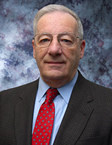 ARS also recognized seven other outstanding Senior Research Scientists for 2006. The awardees are: ARS also recognized seven other outstanding Senior Research Scientists for 2006. The awardees are:
Carlos V. Alonso (Mid-South Area), research leader, ARS Watershed Physical Processes Research Unit, Oxford, Miss., for promoting the development of integrated watershed and stream channel assessment tools and other innovations for watershed management and conservation. (More)
|
|
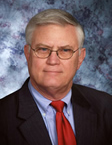 Franklin E. Barton, II (South Atlantic Area), research leader, ARS Quality Assessment Research Unit, Athens, Ga., for helping to advance the field of biomass conversion research. Many of his discoveries have proved critical for researchers trying to improve the process of converting biomass into ethanol. Franklin E. Barton, II (South Atlantic Area), research leader, ARS Quality Assessment Research Unit, Athens, Ga., for helping to advance the field of biomass conversion research. Many of his discoveries have proved critical for researchers trying to improve the process of converting biomass into ethanol.
|
|
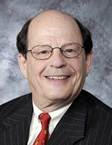 Leslie C. Lewis (Midwest Area), research leader, ARS Corn Insects and Crop Genetics Research Unit, Ames, Iowa, for improving the nation's pest-control strategies for corn. He helped develop mass-rearing techniques that increased opportunities to study the European corn borer and contributed to the development of Bt corn, which has strengthened the national corn industry. Leslie C. Lewis (Midwest Area), research leader, ARS Corn Insects and Crop Genetics Research Unit, Ames, Iowa, for improving the nation's pest-control strategies for corn. He helped develop mass-rearing techniques that increased opportunities to study the European corn borer and contributed to the development of Bt corn, which has strengthened the national corn industry.
|
|
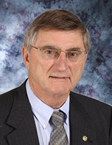 Fredrick J. Muehlbauer (Pacific West Area), research leader, ARS Grain Legume Genetics and Physiology Research Unit, Pullman, Wash., for developing and releasing several cultivars of dry peas, lentils and chickpeas during his career, including the nation's first winter-hardy lentil cultivar. (More) Fredrick J. Muehlbauer (Pacific West Area), research leader, ARS Grain Legume Genetics and Physiology Research Unit, Pullman, Wash., for developing and releasing several cultivars of dry peas, lentils and chickpeas during his career, including the nation's first winter-hardy lentil cultivar. (More)
|
|
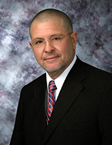 Jeff Pedersen (Northern Plains Area), geneticist, ARS Grain, Forage and Bioenergy Research Unit, Lincoln, Neb., for developing and releasing numerous forage and grain sorghum lines and genetic stocks that are benefiting both industry and science. Jeff Pedersen (Northern Plains Area), geneticist, ARS Grain, Forage and Bioenergy Research Unit, Lincoln, Neb., for developing and releasing numerous forage and grain sorghum lines and genetic stocks that are benefiting both industry and science.
|
|
 Debra C. Peters (Southern Plains Area), ecologist, ARS Jornada Experimental Range, Las Cruces, N.M., for shedding light on how plant processes influence rangeland plant communities. In addition, she developed the first individual plant-based model to simulate shrub encroachment into grasslands. (More) Debra C. Peters (Southern Plains Area), ecologist, ARS Jornada Experimental Range, Las Cruces, N.M., for shedding light on how plant processes influence rangeland plant communities. In addition, she developed the first individual plant-based model to simulate shrub encroachment into grasslands. (More)
|
|
 Walter J. Rawls (Beltsville Area), research leader, ARS Hydrology and Remote Sensing Laboratory, Beltsville, Md., for developing methods to estimate soil water properties that are used today in models by many government agencies. Walter J. Rawls (Beltsville Area), research leader, ARS Hydrology and Remote Sensing Laboratory, Beltsville, Md., for developing methods to estimate soil water properties that are used today in models by many government agencies.
|
|
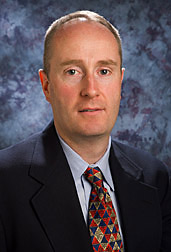 ARS also recognized eight Early Career Research Scientists who have been with the agency for seven years or less. ARS also recognized eight Early Career Research Scientists who have been with the agency for seven years or less.
The highest honor, the Herbert L. Rothbart Outstanding Early Career Research Scientist of the Year Award, went to biologist Douglas D. Bannerman, ARS Bovine Functional Genomics Laboratory, Beltsville, Md.
Bannerman is being recognized for his contributions to scientific understanding of the bacterial disease mastitis and of the bovine immune system. His research focuses on developing strategies to reduce mastitis, leading to increased milk quality and production. (More)
|
|
 The seven other Early Career Research Scientists honored for outstanding work in 2006 were: The seven other Early Career Research Scientists honored for outstanding work in 2006 were:
Justin D. Derner (Northern Plains Area), rangeland scientist, ARS High Plains Grasslands Research Station, Cheyenne, Wyo., for recognizing the importance of shifts in plant communities and precipitation thresholds for carbon sequestration on rangelands. His research has explored the impact of grazing on rangeland carbon storage.
|
|
 Gennaro Fazio (North Atlantic Area), geneticist, ARS Plant Genetic Resources Unit, Geneva, N.Y., for his cooperative work with Cornell University scientists to breed and release three new apple rootstocks with superior resistance to rootstock fire blight and replant disease complex. (More) Gennaro Fazio (North Atlantic Area), geneticist, ARS Plant Genetic Resources Unit, Geneva, N.Y., for his cooperative work with Cornell University scientists to breed and release three new apple rootstocks with superior resistance to rootstock fire blight and replant disease complex. (More)
|
|
 Niklaus J. Grunwald (Pacific West Area), plant pathologist, ARS Horticultural Crops Research Unit, Corvallis, Ore., for his expertise in the area of fungal pathogens. His research has provided new information on the population evolution, disease development and host range of the pathogens that cause potato late blight and sudden oak death. (More) Niklaus J. Grunwald (Pacific West Area), plant pathologist, ARS Horticultural Crops Research Unit, Corvallis, Ore., for his expertise in the area of fungal pathogens. His research has provided new information on the population evolution, disease development and host range of the pathogens that cause potato late blight and sudden oak death. (More)
|
|
 Yulin Jia (Southern Plains Area), plant pathologist, ARS Dale Bumpers National Rice Research Center, Stuttgart, Ark., for research to help control several rice diseases. He has developed DNA markers to improve the process of breeding rice that is resistant to blast, a significant and costly disease. (More) Yulin Jia (Southern Plains Area), plant pathologist, ARS Dale Bumpers National Rice Research Center, Stuttgart, Ark., for research to help control several rice diseases. He has developed DNA markers to improve the process of breeding rice that is resistant to blast, a significant and costly disease. (More)
|
|
 Eric A. Schmelz (South Atlantic Area), plant physiologist, Chemistry Research Unit, ARS Center for Medical, Agricultural and Veterinary Entomology, Gainesville, Fla., for improving biological control by showing how plants detect and defend themselves against insects and pathogens—information that could be helpful in developing more-resistant plants. (More) Eric A. Schmelz (South Atlantic Area), plant physiologist, Chemistry Research Unit, ARS Center for Medical, Agricultural and Veterinary Entomology, Gainesville, Fla., for improving biological control by showing how plants detect and defend themselves against insects and pathogens—information that could be helpful in developing more-resistant plants. (More)
|
|
 Brian C. Small (Mid-South Area), physiologist, ARS Catfish Genetics Research Unit, Stoneville, Miss., for cooperative research to improve catfish breeding by developing assays to identify genetically desirable parent fish. Management decisions based on his research have improved hatch rates by as much as 30 percent. Brian C. Small (Mid-South Area), physiologist, ARS Catfish Genetics Research Unit, Stoneville, Miss., for cooperative research to improve catfish breeding by developing assays to identify genetically desirable parent fish. Management decisions based on his research have improved hatch rates by as much as 30 percent.
|
|
 Heping Zhu (Midwest Area), engineer, ARS Application Technology Research Unit, Wooster, Ohio, for increasing the effectiveness of pest control and drip irrigation. He has developed several tools to improve the accuracy of pesticide sprays and the efficiency of drip irrigation equipment. (More) Heping Zhu (Midwest Area), engineer, ARS Application Technology Research Unit, Wooster, Ohio, for increasing the effectiveness of pest control and drip irrigation. He has developed several tools to improve the accuracy of pesticide sprays and the efficiency of drip irrigation equipment. (More)
|

 WASHINGTON, Mar. 6—Discoveries to advance the expanding field of biobased products and biodiesel research have earned Agricultural Research Service (
WASHINGTON, Mar. 6—Discoveries to advance the expanding field of biobased products and biodiesel research have earned Agricultural Research Service ( In addition to the scientists of the year, the agency today honored other agency employees for outstanding achievements in 2006 for administration and financial management, equal opportunity and civil rights, excellence in information, office professionalism, and technology transfer.
In addition to the scientists of the year, the agency today honored other agency employees for outstanding achievements in 2006 for administration and financial management, equal opportunity and civil rights, excellence in information, office professionalism, and technology transfer. ARS also recognized seven other outstanding Senior Research Scientists for 2006. The awardees are:
ARS also recognized seven other outstanding Senior Research Scientists for 2006. The awardees are:





 ARS also recognized eight Early Career Research Scientists who have been with the agency for seven years or less.
ARS also recognized eight Early Career Research Scientists who have been with the agency for seven years or less. The seven other Early Career Research Scientists honored for outstanding work in 2006 were:
The seven other Early Career Research Scientists honored for outstanding work in 2006 were:




